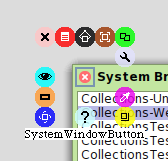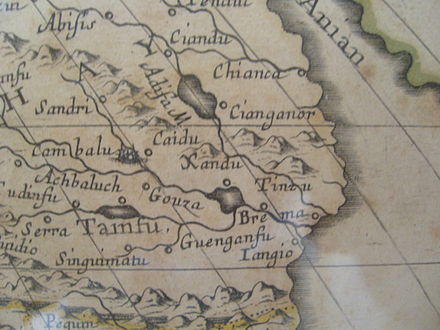Le Sneakernet : Repenser le Partage de Données à l'Ère de la Big Tech
Résumé Exécutif
Face à la mainmise croissante des géants de la technologie (Big Tech) sur les données personnelles et les infrastructures numériques, un mouvement alternatif émerge : le sneakernet.
Ce concept, qui désigne le partage physique de fichiers hors ligne, s'oppose directement au modèle centralisé et commercial de l'internet actuel.
Des collectifs d'artistes et d'activistes développent des initiatives concrètes pour réhabiliter des pratiques d'échange de données autonomes, locales et matérielles.
Les principales conclusions de l'analyse des sources sont les suivantes :
• Le Problème Central : Les données hébergées sur des plateformes comme Google Drive, iCloud ou Instagram n'appartiennent pas aux utilisateurs mais aux entreprises qui les stockent.
Celles-ci contrôlent l'accès, peuvent en modifier les conditions et exploitent les informations de navigation, créant une forte dépendance et un risque de surveillance.
• La Solution Sneakernet : Ce "réseau basket" repose sur l'échange physique de données (via clés USB, par exemple) à la "vitesse des jambes".
Il représente une démarche de reprise de contrôle sur la circulation de l'information, en marge des infrastructures traditionnelles.
• Les Initiatives Clés :
◦ Les "Data-Foires" de l'Outdoor Computer Club : Des événements où les participants échangent des fichiers sur un ordinateur collectif, souvent alimenté par des sources d'énergie autonomes, promouvant une gestion consciente des ressources et une vision de la technologie comme un "commun".
◦ Le projet "Dead Drops" d'Aram Bartholl : Un réseau mondial et participatif de clés USB scellées dans des murs, fonctionnant comme des "boîtes aux lettres mortes" anonymes pour l'échange de fichiers.
◦ Les serveurs DIY du collectif Actinomy : Des ateliers pour construire ses propres mini-serveurs portables, permettant un hébergement local et privé, créant ainsi une "chambre à soi" numérique indépendante des grandes plateformes.
• La Philosophie Sous-jacente : Le mouvement critique "l'obésité de la donnée" et la course à la vitesse.
Il propose de retrouver un "affect par rapport aux données" en privilégiant des échanges plus lents, plus intentionnels et en réutilisant des technologies plus anciennes pour répondre à des enjeux politiques actuels comme la surveillance.
En conclusion, le sneakernet n'est pas une simple nostalgie technologique, mais une réponse politique et pratique à la structure de pouvoir de l'internet moderne.
Il démontre que des alternatives artisanales et autonomes existent déjà pour échapper au contrôle des plateformes et repenser notre rapport à la technologie et aux données.
1. La Problématique : Dépendance et Perte de Contrôle à l'Ère Numérique
Le modèle dominant de l'internet actuel, contrôlé par un nombre restreint de grandes entreprises technologiques, pose un problème fondamental de souveraineté sur les données personnelles.
• Propriété des Données : Une fois stockés en ligne sur des services comme Google Drive, iCloud ou postés sur des réseaux sociaux, les fichiers, photos et documents "deviennent la propriété des plateformes numériques qui les hébergent."
La perception de possession par l'utilisateur est une illusion, car ce dernier perd le contrôle direct sur ses propres créations.
• Contrôle de l'Accès : Les entreprises qui gèrent l'accès et le stockage (telles qu'Amazon, Microsoft, Oracle, Google et Meta) ont le pouvoir unilatéral de "décider de nous faire payer plus cher ou carrément de nous couper cet accès."
• Exploitation des Informations : L'acceptation des cookies autorise les entreprises à utiliser les informations de navigation des utilisateurs, transformant leurs goûts et intérêts en données monétisables.
• Dépendance Structurelle : La facilité d'utilisation de l'internet à haut débit et du stockage "infini" sur le cloud a créé une telle dépendance que l'on "n'imagine même plus comment faire sans".
Cette situation est décrite comme une "mainmise des big tech sur nos vies."
2. Le Sneakernet : Une Alternative au Réseau Global
En réponse à cette centralisation, le sneakernet propose un paradigme radicalement différent, fondé sur l'échange physique et déconnecté.
• Définition : Le terme "sneakernet" signifie littéralement "réseau basket".
Il désigne un réseau d'échange physique fonctionnant "à la vitesse des jambes".
C'est "l'antithèse de l'internet actuel", où les données transitent par des infrastructures de câbles et d'ondes.
• Contrôle et Matérialité : Le principal avantage est le contrôle total sur le chemin de l'information.
Comme le souligne un participant, "on a le contrôle sur par où l'information elle passe, dans ta poche, dans ta main et dans sa poche et donc en ça c'est hors du réseau."
• Une "Innovation" Rétro-Technologique : Le mouvement propose d'utiliser des technologies plus anciennes pour répondre aux problématiques contemporaines.
Un organisateur explique : "Nous, on imagine qu'en prenant peut-être des technologies plus anciennes, on propose une autre vision de l'innovation."
Cette approche est justifiée par le fait qu'elle a "du sens par rapport à ce qui se passe politiquement aujourd'hui autour de l'internet."
3. Initiatives et Projets Phares
Plusieurs collectifs d'artistes et d'activistes ont mis en place des projets concrets pour matérialiser les principes du sneakernet.
Les "Data-Foires" de l'Outdoor Computer Club
Ce collectif, dont les organisateurs utilisent les pseudonymes "Jeff Bisou" et "Xavier Nul", organise des événements d'échange de données hors ligne appelés "data-foires".
• Concept : Un ordinateur est installé dans un lieu (par exemple, une forêt), où les participants peuvent déposer et récupérer des données via des clés USB.
• Autonomie Énergétique : L'installation est souvent alimentée par des "batteries au lithium, de récupération" connectées à un convertisseur qui fournit un courant standard de 230 volts.
Cette démarche soulève des questions sur la gestion collective de l'électricité, perçue non "comme une ressource infinie" mais en fonction des besoins réels.
• Contenus Partagés : Les échanges sont hétéroclites, incluant :
◦ Musique, logiciels, brochures.
◦ Scans 3D.
◦ Un documentaire de Mathieu Rigouste, "Nous sommes des champs de bataille".
◦ Une thèse scientifique sur un hydrogel supramoléculaire utilisé pour cultiver des cellules cancéreuses.
◦ Le site d'une maison d'édition, présenté en avant-première.
• Limites et Modération : Le système n'est pas parfait, avec la présence de "pas mal de fichiers corrompus" et de transferts incomplets.
Cependant, la modération se fait "de manière fluide vu que tout le monde est là en présentiel", permettant de retrouver plus facilement une personne malveillante.
• Philosophie : L'initiative promeut l'idée de "penser l'ordinateur comme un commun".
Le partage d'une machine unique s'oppose à l'usage individuel habituel et transforme la relation à la technologie en une pratique collective.
Dead Drops par Aram Bartholl : Un Réseau d'Échange Anonyme
Initié en 2010 par l'artiste et professeur d'art numérique Aram Bartholl, ce projet est l'une des incarnations les plus connues du sneakernet.
• Concept : Des centaines de clés USB sont scellées dans des murs et autres lieux publics à travers le monde, formant un "réseau d'échanges ouvert".
Le nom "Dead Drops" est une référence aux "boîtes aux lettres mortes" utilisées en espionnage pour déposer des documents de façon anonyme.
• Caractère Participatif : Chacun peut installer une "dead drop" dans sa ville, contribuant ainsi à l'expansion du réseau.
• Évolution Politique : Initialement artistique, le projet a acquis une nouvelle signification militante avec la montée en puissance de Big Tech.
Il invite désormais à s'interroger sur les moyens d'échapper "à la dépendance vis-à-vis des plateformes numériques, mais aussi à leur surveillance".
Serveurs DIY du Collectif Actinomy : Reprendre le Contrôle de l'Hébergement
Pour atteindre une autonomie complète, le collectif Actinomy, basé à Brême, propose d'apprendre à construire soi-même des serveurs locaux et privés.
• Concept : Lors d'ateliers "do-it-yourself", les participants fabriquent de "petits serveurs informatiques portables en forme de porte-clés".
• Fonctionnement : Ces mini-serveurs ne peuvent héberger qu'une page internet légère, accessible uniquement via un réseau Wi-Fi local très restreint.
Le site n'est pas visible sur l'internet mondial mais sur un "petit réseau parallèle".
• Objectif : Cette démarche vise une "reprise de contrôle sur ses informations".
Elle est comparée à la création de "sa propre chambre à soi dans la grande maison de l'Internet mondiale", en opposition aux immenses fermes de serveurs centralisées qui tournent 24/7.
4. Principes et Philosophie du Mouvement Sneakernet
Au-delà des aspects techniques, le sneakernet est porteur d'une vision critique et d'une philosophie alternative de la technologie.
• Critique de "l'Obésité de la Donnée" : Le mouvement remet en question la logique du "toujours plus" (plus de vitesse, plus de stockage).
Il s'interroge : "Est-ce qu'on veut juste envoyer des fichiers hyper lourds le plus vite possible et tout, ou est-ce que on veut retrouver un certain affect par rapport aux données ?"
• Valorisation de la Donnée Précieuse : Dans un contexte de transfert physique, les participants ont tendance à apporter une "petite quantité de données", généralement celles qui "leur semblent précieuses", une sélectivité qui se perd avec le haut débit.
• L'Ordinateur comme un "Commun" : Le partage d'une seule machine lors des data-foires transforme l'ordinateur d'un objet personnel en une ressource collective, modifiant la relation individuelle à la technologie.
• Conscience Énergétique et Matérielle : L'utilisation de systèmes d'alimentation autonomes et de récupération force à une réflexion sur la gestion collective de l'énergie et sur l'empreinte matérielle des infrastructures numériques.
• Sécurité par la Proximité : La présence physique des participants lors des échanges crée une forme d'autorégulation et de responsabilité qui n'existe pas dans les interactions en ligne anonymes.
5. Conclusion : Une Vision Alternative pour l'Avenir Numérique
Le mouvement sneakernet, bien qu'il puisse paraître "utopique ou rétrograde", constitue une critique pertinente et une alternative tangible à l'écosystème numérique actuel.
Il démontre que l'autonomie face aux grandes plateformes est possible.
Le futur, selon cette perspective, pourrait impliquer de "moins stocker, moins partager et héberger en local pour vraiment échapper au contrôle des grandes plateformes".
Ces alternatives artisanales et autonomes ne sont pas de simples expérimentations ; elles représentent une proposition politique concrète face aux défis de la surveillance et de la centralisation du pouvoir numérique.


